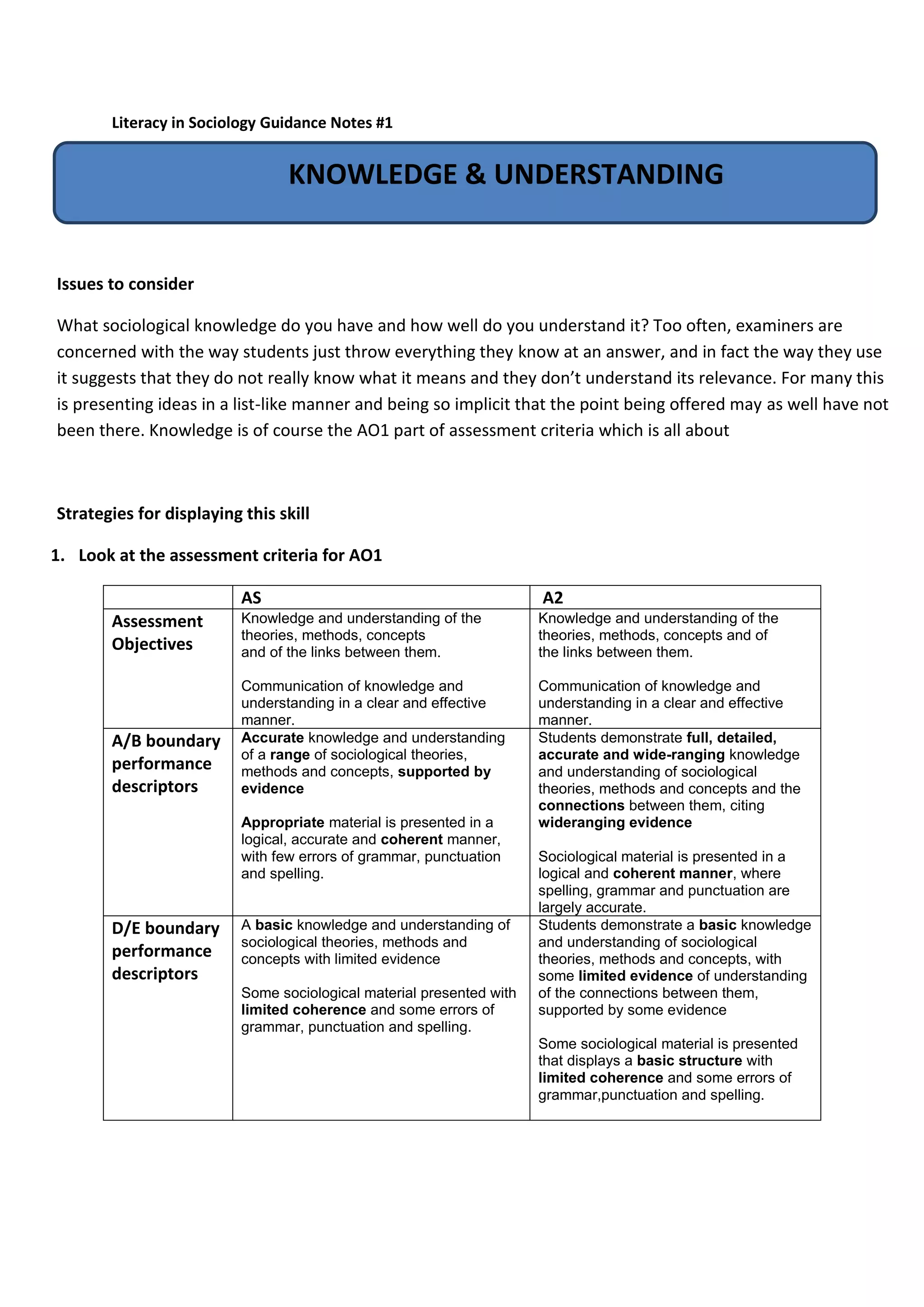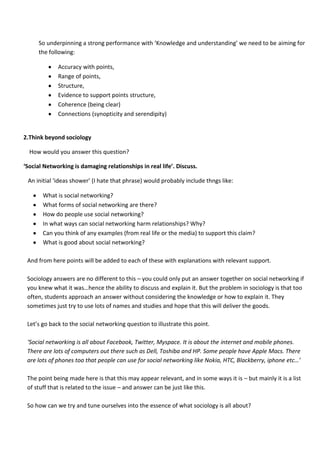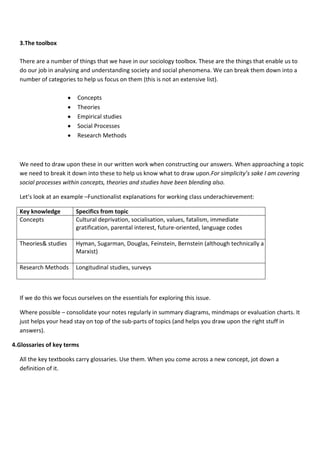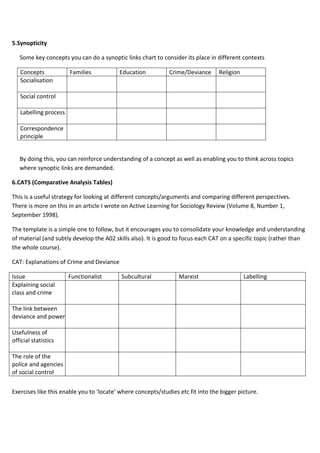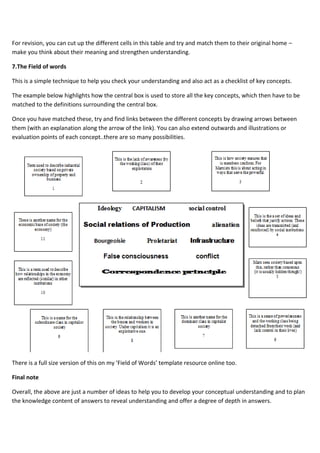1. Students should focus on displaying accurate and in-depth knowledge and understanding of sociological concepts, theories, and studies in their exam answers rather than simply listing ideas.
2. To demonstrate understanding, students must structure their knowledge, provide evidence to support points, ensure coherence and logical connections between ideas.
3. The document provides strategies for students to develop and demonstrate their sociological knowledge, including using concepts from their "toolbox", creating synoptic links charts, comparative analysis tables, and other visualization techniques.
